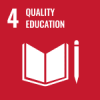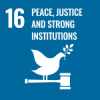The Fifth Congress of Education, Teaching, and Culture (PPK) will be held on 7-8 May in 2021 at the UGM Senate Hall. Before heading to the peak event, a pre-congress was also held with online seminars.
The pre-congress was opened with an online seminar on Sunday (2/5) afternoon raising the topic on “Grand Design and Roadmap for Pancasila Education and Culture in the National Education System”. This seminar was held through Zoom and broadcast live through the UGM Center for Pancasila Studies YouTube channel.
At the opening of the seminar, Prof. Sutaryo, as one of the initiators of this PPK Congress explained that the spirit brought by this congress is still the same: to restore the dignity of Pancasila in education in Indonesia. However, according to him, the current context provides a stronger foundation for carrying out this goal.
Prof. Taryo said that technological developments caused the boundaries between nations to become thinner. This exacerbates the problem of the weakening of Pancasila among the youth. Therefore, only through education, from elementary school to university, can Pancasila culture be carried out.
“The purpose of the PPK Congress is to restore education, teaching, and culture to the nation itself, not to foreign nations. To shape the character of the nation, by means of the nation itself,” he explained.
Meanwhile, UGM Chancellor, Prof. Panut Mulyono, agreed to this. According to him, after the reformation, students seemed to know little about Pancasila. They only heard about Pancasila vaguely but were not taught independently after implementing the National Education System Law no. 20 of 2003.
As a result, Panut said there was a so-called ideological vacuum in this country. Therefore, trans-national ideologies such as radicalism and terrorism emerged, entering and hegemonizing Indonesian youth. They learn it from the internet or social media without the assistance of a teacher.
“Events in Makassar and the National Police Headquarters are examples of this. The perpetrators of the two cases are none other than young people from the generations that consume this rapid technological development, namely millennials,” he said.
For this incident, Panut asked to reflect on why it is so easy for young people to be persuaded by radicalism and terrorism. He encouraged examining the root of the problem, so Pancasila as the basis of the state could become the basic foundation of national education.
Panut reminded that a great nation has education and teaching based on its own culture. Pancasila as the basis of the state is extracted from the social and cultural life of the community. Therefore, it needs to be abstracted into the national education system.
“As Nelson Mandela said, education is the most powerful weapon to change the world. And the collapse of the education system will lead to the collapse of the country. Thus, Indonesia must build an education that can answer future needs and challenges,” he said.
At the event, Prof. Nizam, Director General of Higher Education RI, talked about the “Merdeka Belajar, Kampus Merdeka” program. The main objective of the program is to produce Pancasila students.
“Pancasila students have characters that believe and fear God, have a noble character, are independent, think critically, have global diversity, work together, and are creative. From that, we want Indonesian students to become students who are globally competent and behave following the values of Pancasila,” he explained.



